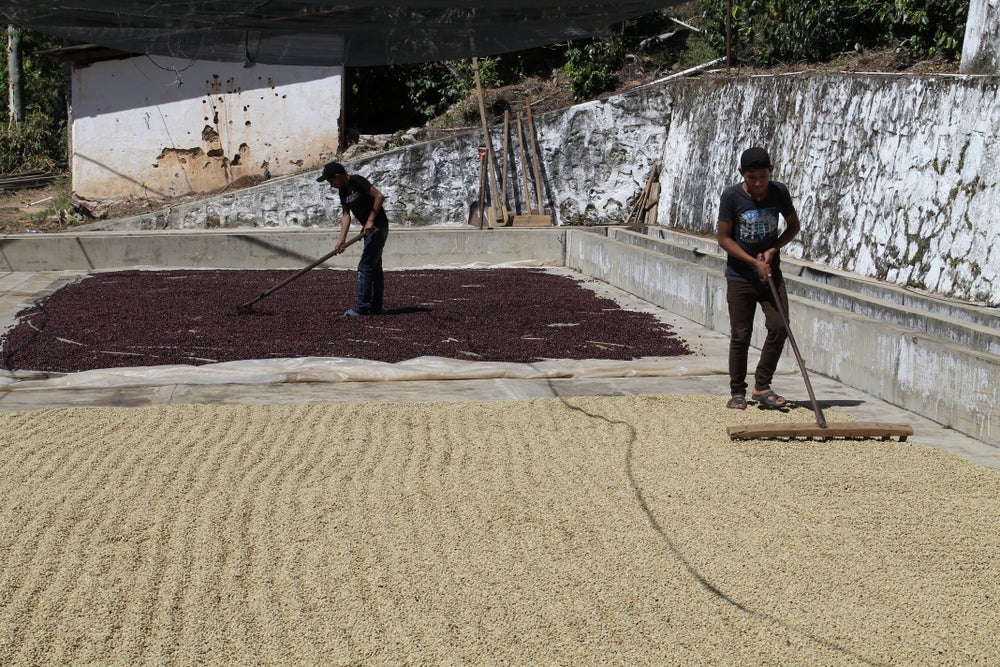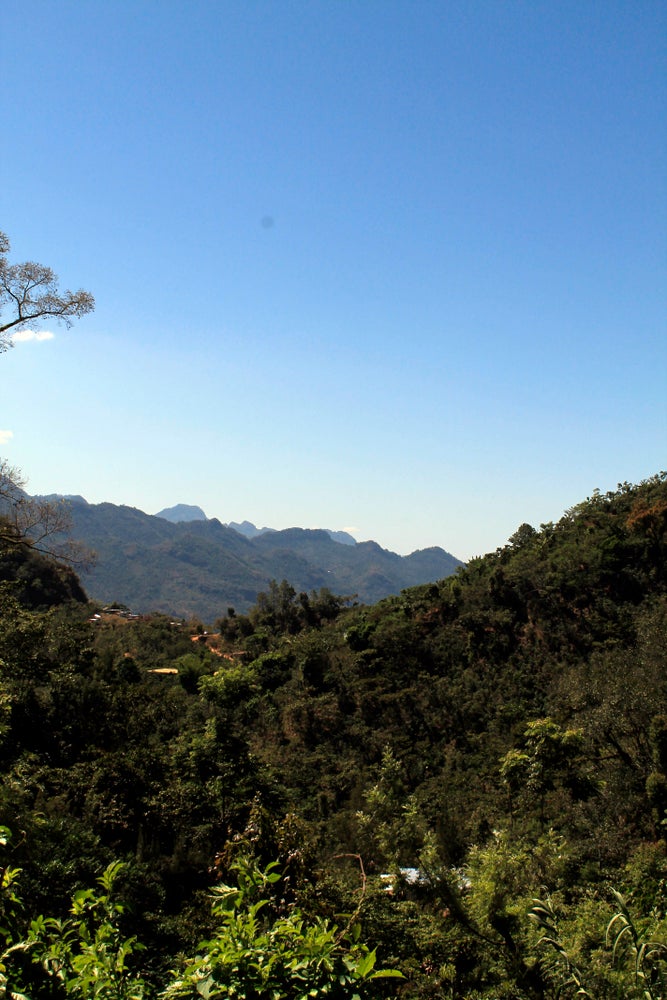About This Coffee
Owner Ivan Ovalle is laser focused on producing high quality, ecologically-friendly coffees at his farm, Finca Palo Blanco in La Democracia, Huehuetenango. Ovalle holds an engineering degree and has utilized his training to increase Finca Palo Blanco’s water efficiency and to ensure that workers pick only the ripest cherry with the highest sugar content.
Cultivation
The farm is 60 hectares, 10 of which are devoted to forest reserves, while the remaining 50 hectares are planted with coffee trees. In addition to growing Bourbon, Catuai, Caturra and Pacamara varieties, Ovalle also plants less common varieties including SL28, Marsellesa and Parainema at the farm’s higher altitudes.
This coffee is also Organic, which means that it was grown without the use of any artificial fertilizers or pesticides. Organic farming can also include ecologically-focus farming method that aim to reduce erosion, increase irrigation and improve overall soil health. With the help of an organic certification, producers receive higher prices and they, their families and any workers on their farm are not exposed to dangerous chemicals. Fewer chemicals used on a farm also means less run off and fewer chemicals finding their way into our global water systems.
Harvest & Post-Harvest
Ovalle is meticulous about teaching workers to pick only ripe, red cherry at the exactly right moment. He’s used analyses of Brix degrees (sugar content) to find the optimal moment at which to pick cherry. Workers selectively handpick cherry according to their training.
Palo Blanco is dedicated to protecting the environment from any adverse effects of coffee growing. Ovalle says he’s been improving and refining Palo Blanco’s processing methods for more than a decade. He’s been focused on reducing water usage year after year and working with various certification programs to improve the farm’s environmental and social impacts.
After selective handpicking, cherry is carefully sorted to select the best and most ripe cherry using visual inspection and flotation. Cherry that passes Ovalle’s high standards is laid on patios to dry in direct sunlight. Direct sunlight helps to speed up dehydration of the parchment and mucilage. Removing excess moisture as quickly as possible and turning drying parchment frequently can help prevent of drying defects such as phenol and mold.
Cherry is turned frequently, especially during the first 3 to 4 days. During this time, workers go over cherry and remove any damaged cherry to ensure only the highest quality cherry reaches the ensuing stages. Cherry that passes the test is then transferred a greenhouse covered with plastic sheeting, where it will dry on raised beds for an additional 13 to 15 days.
About Huehuetenango
Huehuetenango is well-known for its high altitude and consistent weather patterns. The region lies at a nexus of hot air sweeping eastwards from the Plains of Tehuantepec in Oaxaca, Mexico and cool air rushing down from the Cuchumantanes Mountains. The meeting of this hot and cold air creates a microclimate that keeps frost in check and enables coffee cultivation at higher altitudes. Coffee production at 2,000 meters above sea level here is common. These conditions are perfect for producing the sparkling acidity and distinctive fruit flavors of the region.
Strictly Hard Bean (SHB)
Strictly Hard Bean (SHB) specifies the altitude at which the coffee was grown. A coffee must be grown at 1,200 meters above sea level or higher to be considered SHB. The higher altitude and lower temperatures mean that the coffee fruit matures more slowly, creating a denser bean.
European Preparation (EP)
EP stands for European Preparation. EP beans are Screen 15+ with a low defect tolerance.
Coffee in Guatemala
Guatemala boasts a variety of growing regions and conditions that produce spectacular coffees. Today, the country is revered as a producer of some of the most flavorful and nuanced cups worldwide. We are proud to work with several exceptional in-country partners to bring these coffees to market.
The Guatemalan coffee industry experienced a major setback with the 2010 appearance of Coffee Leaf Rust (CLR) in Latin America. The epidemic peaked in severity in 2012, and though CLR continues to affect some farms, Guatemala continues to produce high-quality, record-breaking coffees. In 2017, new and varied processing methods pushed prices at the Guatemalan Cup of Excellence contest to record highs.
The quality of coffee being produced in Guatemala is increasing, overall, due to the diversity of the industry’s producers. There are more and more small holder farmers producing exceptional coffee at high altitudes. Cooperatives are becoming more appealing to so many smallholders because they often offer farmers financing and other support for improving their farming and processing and are frequently able to offer higher prices for cherry than middlemen. Many cooperatives have initiated quality improvement training for farmer members and are becoming more adept at helping members market their coffee as specialty.

